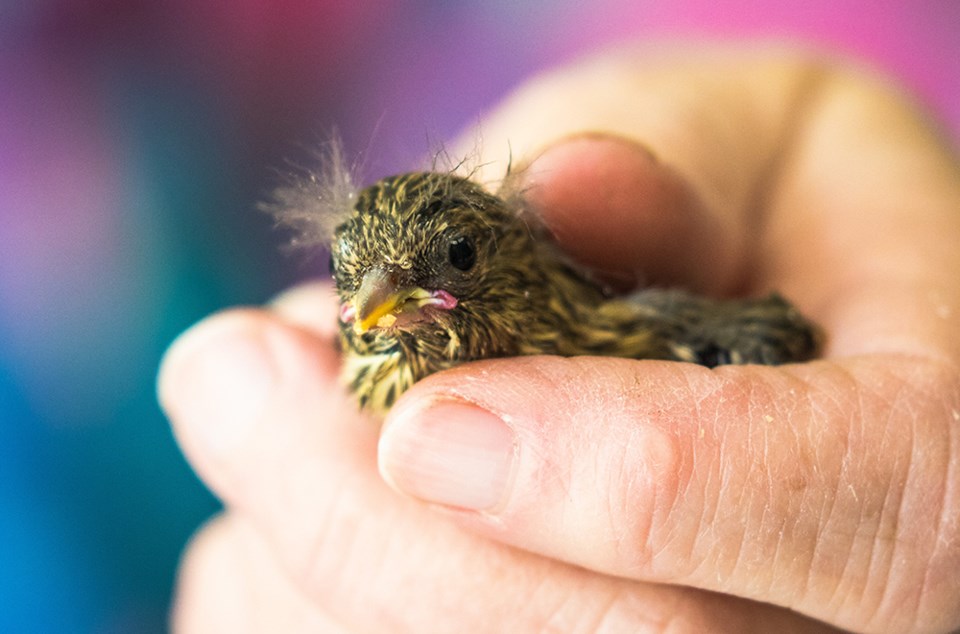WINTER WONDERS: Even as we welcome back all the wonderful songbirds like dark-eyed juncos, song sparrows, golden-crowned sparrows, fox sparrows [above], chestnut-backed chickadees and spotted towhees that arrive in the fall and leave in the spring, we find they are frequently the victims of cat attacks.
The resulting bacterial infection then requires a course of antibiotics, as well as wrapping of the wounds. All of this is stressful for the bird and not always successful.
While we delight in their abundance of songs and whistles, they are easily blinded by the reflections in our windows, crashing into them, knocking themselves out. The larger Steller’s jays and flickers suffer all the same dangers.
Even a temporary blackout can hide a serious concussion, which only shows up later, making the bird again vulnerable to cat attacks as well as other preying animals.
Songbirds make up close to half of the world’s 10,000 bird species. They learn their songs and perform them using a specialized voice box called a syrinx. Located at the base of a bird’s trachea, it produces sounds without the vocal folds of mammals.
The vast majority of non-songbird species make simpler sounds that are instinctual rather than learned.
Anyone who finds an injured or orphaned bird should place it in a dark covered box and call Powell River Orphaned Wildlife Society (PROWLS) immediately. The 24/7 emergency phone line is 604.483.9787. Also, seriously consider using one of the various inconspicuous methods available to prevent window strikes.




